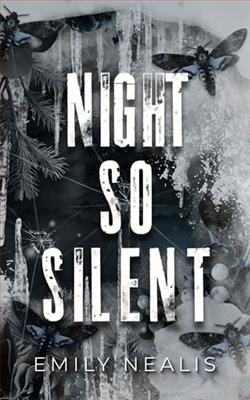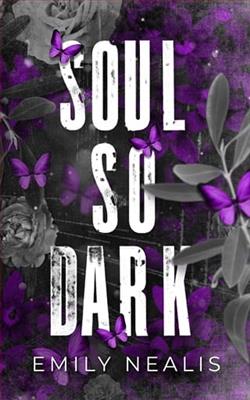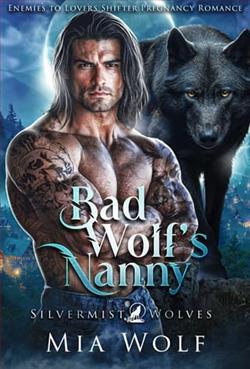Page 98 of Late Bloomer
But a wedding scene is so cliché and heteronormative for the theme… right?
The final display in this row reminds me of the scene inBambibefore things get traumatizing. Various woodland creatures are scattered throughout the display. A line of fuzzy baby ducks made of daisies are following their mama, with two little bunnies mid-hop in the back corner fashioned from hydrangeas. A family of deer graze in the center, their expressions so animated it takes all my willpower not to let out a wistfulaww. The surrounding scene is lush with wildflowers. Mother Nature at her happiest and brightest.
“Damn… that’s really good.”
Pepper nods, turning and hustling toward our area. Diksha and Tal wave at us down the hall. “That’s enough of that,” Pepper says with finality. “No use creating even more doubt for ourselves, right?”
I have to agree.
Some of these are… well, really freaking good, and itcreates a sharp bubble of jealousy that hiccups in my chest. Whatever. I can’t think about that now because right after we get to our spot, three judges appear, and our moment arrives.
The judges circle our piece—our floral shrine—to one of the greats.
Sappho.
She stands larger than life in the center of our display, a writing tool clutched in one hand, a book in the other. Her body is made from flexible reeds and draped in a Grecian gown of pale pink flowers. Her hair is a mix of fresh and dried blooms, chocolate lace and delicate immortelle, creating the soft full curls.
We fashioned the tablet in her arms by weaving together hardy stems and creating pages of white petals, a cascade of brilliant flowers pouring from her book, spilling to the ground and spreading at her feet in swirls of delicate rainbows, lone petals and blooms sprinkled to the edges of the space, showing just how far her words reach. Ideas sprout around her in the form of flowers, hanging in her line of sight and floating above her head, ready to be plucked and set down to inspire people for thousands of years to come.
The judges circle her like sharks, and I clear my throat, stepping next to her.
“Sappho of Lesbos is not only one of very few poetesses from ancient Greece, but one of the greatest poets in recorded history,” I say, voice wobbly as I launch into our allotted five minutes of explanation and inspiration. “Much of her work waslost for years, and—when it was refound—burned for portraying the sensuality and desire that comes with loving more than one gender. Like many great women of history, she was scorned by men who ruled, parodying her memory as overly promiscuous and lecherous… not too terribly different to how we shame contemporary women for expressing any sorts of desire.”
The eyes of the judges leave Sappho, sticking on me. I clear my throat again, trying to drum up the courage to keep speaking.
“We drew inspiration for this piece”—I wave at her tall form—“from the famous fresco of Sappho. Some historians argue that the iconic painting probably isn’t even Sappho, instead an unidentified woman from Pompeii. I’m not an expert on art from that era, and I’m certainly not a supporter of revisionist history or anything like that, but I tend to disagree with them. I really like the idea that this woman—who’s holding her weapons of pen and paper so close, looking out, lost in thought, some of the most sacred human experiences waiting in a drop of ink she’ll trace across the page—is Sappho. Plus, I’m evoking the right of artistic license or whatever.”
That earns me a few chuckles from the judges. I pause, glancing again at Sappho, then to Pepper, who’s hovering on the edges. Her smile is so luminous, it makes my eyes water.
“While so much of her work has been lost to time, what remains is beautiful. Important. Sappho didn’t recite epic tales or yell at gods.” I’m lost to everyone else in the room, unable to stop staring at Pepper. Her crooked smile and rosy cheeks andthe way she leans forward, like she’s hanging on my every word. The next ones come out soft, hoarse. Just for her. “Her poems spoke softly—as intimately as confessions between lovers—about the terrible, wonderful ache of being in love.”
Chapter 34OPAL
“There’s no way you aren’t going to win,” Ophelia says, way too close to my ear. “This other shit is like arts-and-crafts time at a preschool after the kids are all coked up on sugar and recess.”
“You have such a horrible way with words,” Olivia says, lip curled. “Some things need to stay inside thoughts.”
Ophelia gives a haughty sniff. “Oh please. Twitter killed that concept almost two decades ago.”
“I think you both should stop talking,” I say, one eye twitching as I tear the napkin in my hands to shreds. We’ve been waiting for close to an hour in the large dining room for the awards ceremony to start.
Pepper and I deflated after the presentation, shrinking in and trailing off while our friends surrounded us and chatted away about how much they loved our design. I know this comedown—this crash—after putting so much of yourself into a piece of art, then releasing it to the public. It’s like thetether that holds you to earth snaps, and you float aimlessly into space, having no idea where you’ll land. If you’ll land. It’s terrifyingly lonely.
“If you’d all please take your seats,” a woman in a crisp business suit says into a microphone at the front of the room, “we’ll get started.”
After the room settles into silence, the woman launches into her speech.
“Hello, and welcome to this year’s Living Art Festival awards ceremony. I’m Karen Summers, president of the American Flora and Fauna Society, making dreams bloom since 1952.”
There’s a smattering of applause as Karen smiles at the audience. I’m so nervous I think I might projectile vomit right onto the lilac centerpiece in the middle of our table.
“As you know, our mission at AFAFS is to advocate for farmers and florists across the country, protecting their interests and livelihood, while constantly researching best practices in sustainability for the environment.” Karen pauses again, and I do manage to clap my shaky, clammy hands for that one.
But instead of getting on with the damn thing, Karen rambles through an excessively detailed history of the organization and draws out thank-yous to the millions of board members who help make it happen, followed by an equally drawn-out thank-you to the Grove Park Inn for hosting.
“I’d also like to give a special thanks toSomething Bluemagazine for once again sponsoring the grand prize. The exposure you’ve offered to past winners has launched so manycareers, and your championing of the AFAFS keeps our work fertile and in bloom.” A tinkle of pity laughter ripples across the room.
“And now,” Karen says, clapping her hands, “it’s time for the fun part, winner announcements!”















